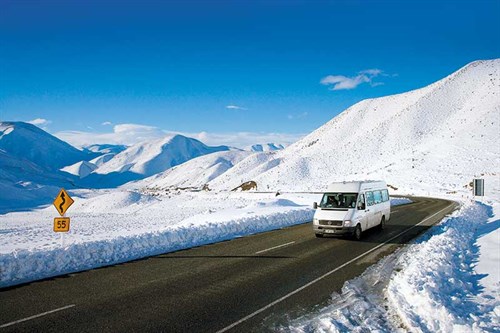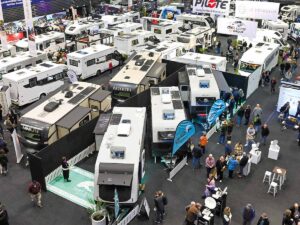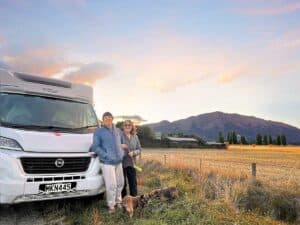Mechanical
- Check all fluid levels and top up if required. Be sure to add a washer fluid additive to your windscreen wash to prevent it from freezing.
- Test your coolant mix with a glycol meter. If you are unsure ask your trusted workshop to do it for you. The glycol concentration is important to prevent the coolant fluid from freezing. With most vehicles the glycol/water mix should be 50/50 but check your owner’s manual for exact specs.
Tyres
- Keep an eye on your tyre tread. Especially for winter driving it is best to stay above a 4mm limit.
- Ensure your tyres are suitable for winter conditions (indicated by the snowflake or the M&S—mud and snow—writing on the side wall).
Batteries
- Ensure batteries are in good shape. The efficiency of batteries reduces in colder temperatures so it’s extra important to check their condition and fluid levels and make sure they are charged.
- Keep a battery charger if need be. If you’re not using the vehicle for a number of months, make sure to use a battery charger, as deep discharge shortens the battery life considerably. Tanks/Water.
Tanks/Water
- Keep all tanks empty. In winter, it is best to keep all tanks empty including the boiler unless you are using your vehicle. Water freezing in tanks and boilers can become expensive, as it can cause severe damage. Frozen water will expand and break pipes, tanks or boilers.
- Flush your tanks. Give all tanks a proper flush through, especially the waste tank and toilet cassette, so they are nice and fresh when you want to use your motorhome again.
Gas/LPG
- Know that gas pressure in cylinders reduce in cold tempreature. This is important to know as modern fridges and heaters respond sensitively to the gas pressure they are supplied with and might not operate as reliably as during summer.
- Fill the cylinders before they empty. It’s a good idea to fill the cylinders before they are completely empty as the volume left in the cylinder also affects the pressure. The more LPG left in the cylinder the higher
the pressure. - Consider that gas varies. Quality and composition of the LPG (propane/butane mix) gas varies depending on the supplier.n
There are a few things that can become life-savers over the winter period that you should have onboard with you.
Essentials
There are a few things that can become life-savers over the winter period that you should have onboard with you.
- Keep snow chains onboard. If you’re planning to travel through snowy areas it’s wise to keep snow chains onboard, as you might be denied access to certain roads without them (or end up stuck!).
- Keep an ice scaper. An ice scraper is handy to clear those frozen windows in the morning.
- Lock de-icer. This is in case your locks freeze shut and you can’t get your key in to lock or unlock your doors.
- Pack additional supplies. E.g. food, tow rope and a spare can of petrol/diesel are great to add to the winter kit.






